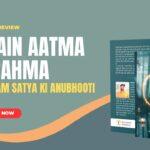
Poetry that speaks from the soul. Meri Lekhni
Title: Meri Lekhni
Author: Amareshwar Pandey (Shreyas)
ISBN: 9789363550926
Publisher: Evincepub Publishing
Introduction
“Meri Lekhni” is a deeply touching and heartfelt collection of Hindi poems penned by Amareshwar Pandey, who writes under the pen name Shreyas. The title, which translates to “My Pen,” reflects the soul of the author and his emotions inked onto paper. This collection is more than just poetry—it is a mirror to the thoughts, struggles, love, spirituality, social concerns, and inner conflicts experienced by a sensitive mind navigating life with awareness and empathy.
Written in simple yet powerful language, the poems carry a natural rhythm and flow. Each composition is like a pearl threaded into a beautiful necklace of feelings. Pandey’s background in psychology shines through in the depth and sensitivity of his work, offering both literary pleasure and emotional introspection to the reader.
About the Author
Amareshwar Pandey, better known by his literary name Shreyas, is a 22-year-old PhD scholar in Psychology from DDU Gorakhpur University. His journey into literature began early, and his first published work was a poetry collection titled “Yuva Man” in 2020, which explored the mental world of youth.
His passion for writing includes both Hindi and English, and he actively participates in poetic forums. He believes in the power of poetry and couplets as tools to communicate powerful ideas and emotions simply. Meri Lekhni stands as a strong testament to this belief, offering readers poems that are easy to understand but rich in meaning.
Thematic Variety
One of the most commendable aspects of Meri Lekhni is its diversity in themes. Pandey does not limit himself to one genre or emotion. Instead, he explores a wide spectrum:
- Spirituality and Devotion: Poems like “Shiv Kya Hain” and “Mere Ram” capture the essence of Indian devotion. Without being preachy, they reflect a genuine reverence for divine presence in life, touching upon philosophical and emotional aspects of faith.
- Love and Romance (Shringar Ras): Romantic emotions are portrayed with dignity and subtle elegance. Poems such as “Ek Tarfa Kahani,” “Meri Parchhai Ho,” and “Woh Hai” paint a beautiful picture of love—sometimes fulfilled, sometimes one-sided, but always soulful.
- Social Realities and Reflection: Pandey’s awareness of social issues comes alive in poems like “Jhaanki,” “Badlav,” “Matlab Ki Duniya,” and “Ek Aurat Kabhi Kuch Nahi Kehti.” These verses make the reader pause and reflect upon the moral and ethical state of society.
- Emotional Introspection and Self-Identity: The poet’s inner world is expressed poignantly in “Main Gumnaam Hoon,” “Ye Main Hoon,” and “Marna Tha.” These are some of the strongest pieces that bring out raw, vulnerable, and honest thoughts—showcasing the inner battles of the self.
- Family and Relationships: Emotional poems dedicated to parents (“Maa,” “Pita”), teachers (“Shikshak”), and daughters (“Beti Ko Sandesh”) showcase the beauty and depth of personal relationships, gratitude, and love within the Indian familial context.
- Patriotism and Environmentalism: Pandey’s sense of duty and nationalism is evident in pieces like “Woh Jo Kala Diwas Tha” (on the Pulwama attack) and “Har Ped Kuch Kehta Hai.” They convey strong messages through emotionally compelling verses.
Language and Style
The language in Meri Lekhni is simple, accessible, and relatable. It doesn’t rely on complex metaphors or rare words. Instead, the power of the poems lies in the honesty of the emotion and the clarity of expression.
Pandey uses rhyme effectively, adding a musical quality to many of the poems. The choice of words feels natural, and the flow of verses is smooth. His writing style is personal yet universal—any reader, regardless of age or background, can connect with the feelings he portrays.
Poetic Highlights
1. “Shiv Kya Hain”
This poem is a beautiful spiritual offering that tries to express the infinite nature of Lord Shiva. By describing Shiva as love, sacrifice, power, wisdom, and peace, the poem explores divine omnipresence. It reads like a mantra—simple yet profound.
2. “Ek Tarfa Kahani”
This romantic poem on one-sided love shows emotional depth, using vivid imagery such as “makhmali boli” (velvet voice) and “chashme ko utaarna” (removing glasses) to portray the beloved. It’s a heartfelt expression of silent longing.
3. “Jhaanki”
A hard-hitting commentary on the moral decline in modern society, especially highlighting the erosion of relationships and values. The poet cleverly weaves in references to mythology (Ram, Sita) and societal transformation to emphasize the contrast between idealism and current reality.
4. “Ek Aurat Kabhi Kuch Nahi Kehti Hai”
This poem speaks volumes about women’s silent struggles. Through repetitive lines and day-to-day imagery, the poet draws attention to how a woman sacrifices and suffers quietly in our patriarchal society. A very relevant and touching piece.
5. “Meri Parchhai Ho”
A deeply romantic and philosophical piece that compares the beloved to a shadow, a guiding star, a comforting presence, and an inseparable part of the self. It’s soothing and emotionally rich.
Emotional Impact
Each poem in this collection connects with the reader on an emotional level. Whether you are in love, missing someone, remembering your parents, thinking about your childhood, or reflecting on society’s condition—you’ll find a poem that feels like it was written just for you.
There is also a strong undertone of hope and resilience. In poems like “Hausle Ne” and “Kabhi Na Kabhi,” the message is clear: no matter how dark the times are, inner strength and determination can bring us back to light.
Psychological Depth
Being a student of psychology, Shreyas incorporates deep human insights into his poetry. He explores inner conflicts, feelings of worthlessness, rejection, longing, and self-realization. For instance:
- “Main Gumnaam Hoon” reflects identity crises and the feeling of not being seen by the world.
- “Marna Tha” addresses depression and suicidal thoughts but ends with hope.
- “Zindagi Kitaab Hoti” expresses regret and a yearning to rewrite the painful chapters of life.
These poems not only touch hearts but also create awareness about mental health.
Literary and Cultural Value
The poetry of Meri Lekhni carries strong cultural roots. From references to Hindu deities and Indian traditions to reflections on joint family systems, gender roles, and patriotic emotions—this collection is firmly placed in the soil of Indian life and values.
It also serves as a reminder of how much wisdom and strength lie in our native language literature. In a world increasingly moving towards westernization, this book reclaims the emotional power of Hindi poetry.
Suggestions and Scope
While the poems are beautiful, some readers may find the themes a bit familiar—love, heartbreak, society, and spirituality are common topics. A little more experimentation in form, or inclusion of narrative poems or dialogues, might have added more variety.
However, this doesn’t take away from the emotional richness of the book. For readers who are new to Hindi poetry or prefer simple and meaningful literature, this book is a perfect choice.
Final Thoughts
“Meri Lekhni” is a celebration of the human spirit, emotions, relationships, and values. It is a reminder that poetry is not just for poets—it is for everyone who has ever felt love, loss, hope, or pain.
Amareshwar Pandey, at such a young age, has created a collection that resonates deeply with readers. His command over language, ability to observe human emotions, and clarity of thought make this book a must-read for poetry lovers.
This is a book to keep on your bedside table, to read on a quiet evening, or to gift someone who loves heartfelt expressions. It doesn’t scream for attention; instead, it gently holds your hand and walks you through the corridors of the soul.
Buy on Amazon: https://www.amazon.in/dp/9363550923

